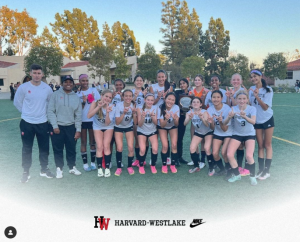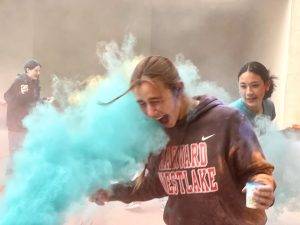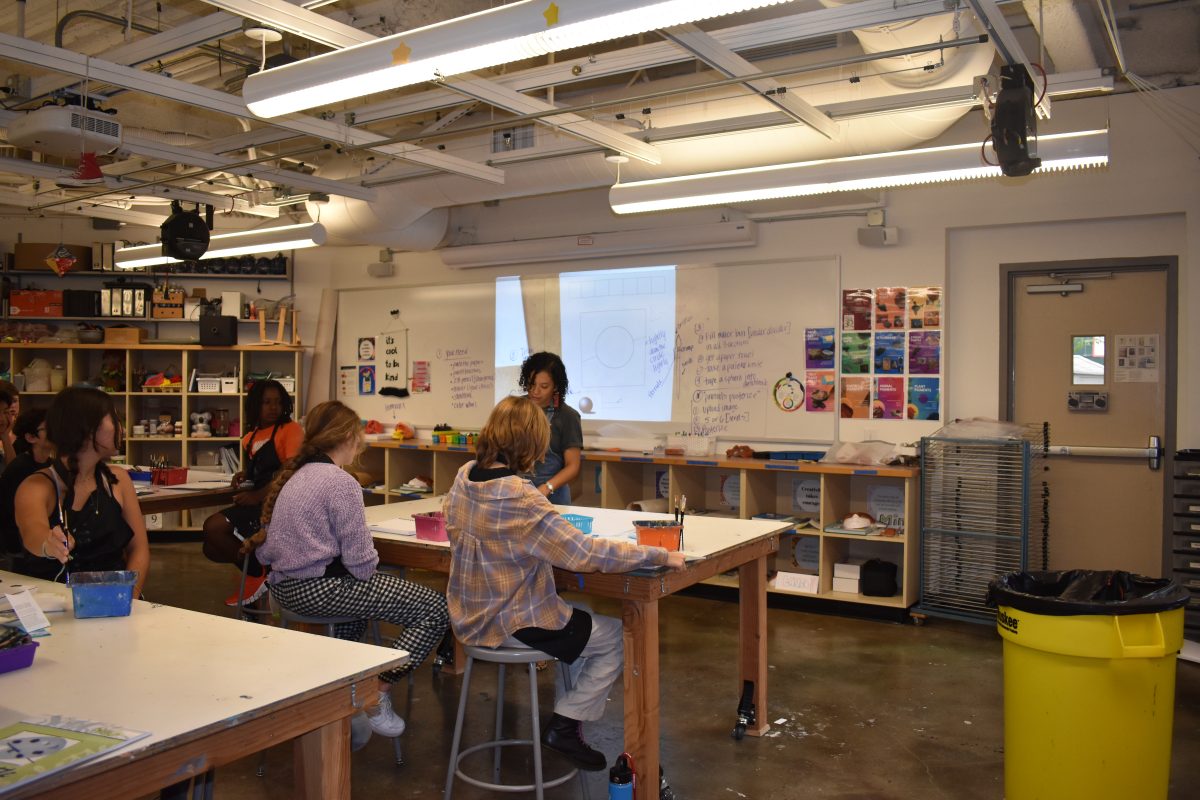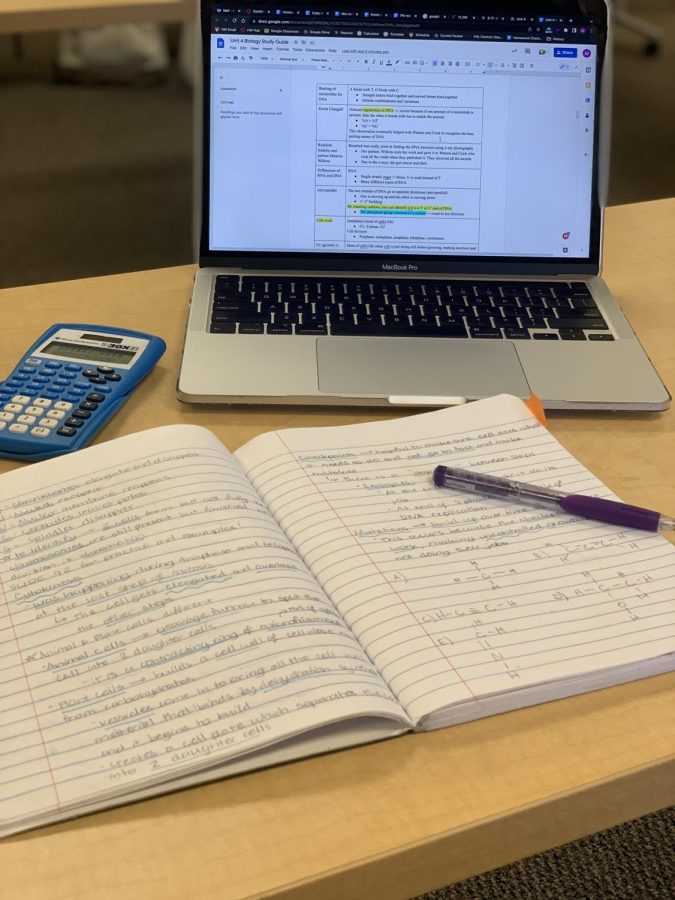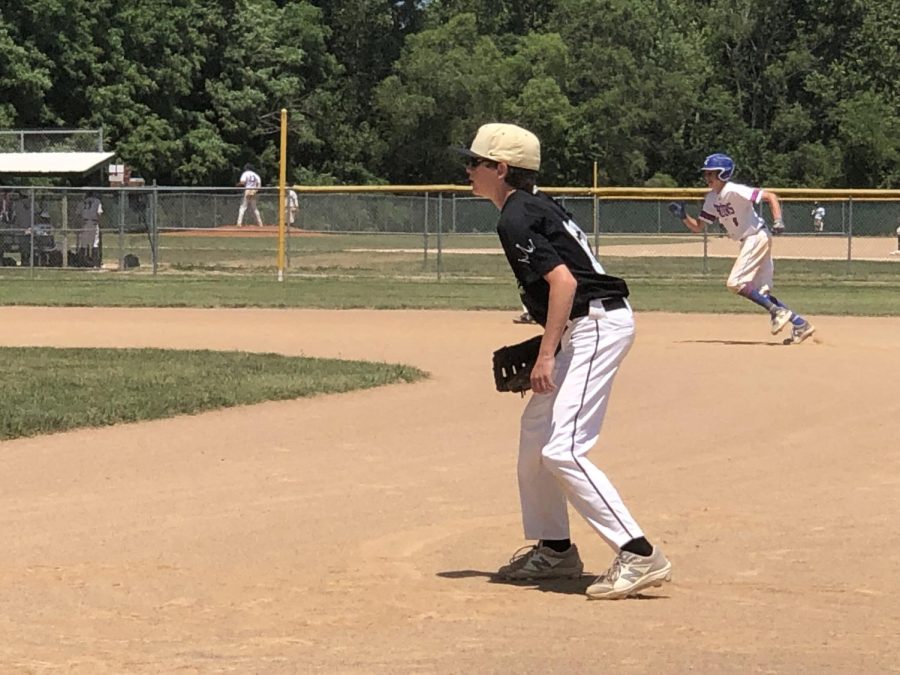
Students should listen to bridge the political divide
By Laura Kors ’21
After election day last November, students returned to school in “Make America Great Again” hats and Bernie Sanders shirts. Many came to school in black to mourn for the country. The clothing was not worn for long, but it showed the real divisions on campus following the election.
Now, a year later, passion may have died down, but little suggests we have actually bridged the political rift on campus. Although it may appear that the campus’s political divide has closed because discussions regarding politics are rare, the community’s silence actually shows the division is still there. Students have turned silent in fear of backlash, due to them being scared of the “other side,” but many are still not fully aware of what others actually believe.
For the first time in a while, the Spectrum does not have a political column. Although many students were asked to write it, no one agreed to do it. The most common reason for not wanting to write the column was that they were afraid. They were not just scared of going against the mainstream student view, but also of backlash from anyone. One girl said she did not want her teachers to know she is Republican, and another said she was worried that if she misrepresented the liberal point of view, someone would become angry at her.
Everyone feels silenced by both members of student body and faculty. Even students who hold the majority opinion do not feel like they can speak freely. Teachers lead their students by example, whether or not they intend to, and must remind their classes about the value of other points of view. Regardless of whether or not one agrees with a certain view, it is important to see where their thought is coming from, especially if they want to change it. No matter what someone says, someone is bound to disagree. The community must stop viewing political arguments negatively and learn that disagreement is important to educate people about different perspectives and how to defend their beliefs.
After the election, students have become increasingly polarized due to general outrage with President Donald Trump, and how strongly identity plays into politics. Trump has taken actions that are against the school’s values. Some examples are the Trans Military Ban, laws that roll back rights for LGBTQIA+ and victims of sexual assaults students and his failure to denounce Charlottesville and white supremacy. From his campaign trail to more recent speeches, Trump has made racist, misogynist and xenophobic comments. Many students struggle with the current administration because so many of their laws and commentary have to do with the treatment of certain identity groups. Acceptance becomes difficult when the views they are meant to accept do not accept other people or even themselves.
The campus environment is also difficult because the Middle School is filled with social pressures, making it uniquely difficult to be willing to stand up for beliefs. Politics is loaded with questions about identity, and during their middle school years, students are trying to figure out who they are and what their identity means to them. Many students follow their parents’ political views, but others begin to branch out and develop their own thoughts when they are at the Middle School. Social pressure and questions of identity can be stressful and make it easier to stay silent and blend in than to stand up.
Polarization also comes from the way students choose to talk to each other. Political discussions are rare and usually the participants either automatically agree with each other keeping them in their political bubble, or they yell past each other the whole time. Political discussions are not meant to be won. The louder someone is and the more they interrupt, the more likely the other person finds them unreasonable and does not actually listen to what they say. Students should talk about politics to educate others and themselves. Silencing someone is not a victory because they will continue to hold their beliefs and vote according to them.
Another important factor is how students receive news. Many hear about political developments from peers or parents who tend to give a biased portrayal of events. People share the same views, creating an echo-chamber that constantly reaffirms students’ beliefs and does not allow them to hear other views. Many also received a lot of their political exposure from social media accounts. The sites only show articles similar to ones the user has already interacted with, meaning they just see more and more accounts sharing their views. These sites can often spread incorrect information, oversimplify stories and miss key details. The increased influence of social media on students has aided this intense polarization. It is important that students hear from other sides and get complete stories.
To begin to bridge the divide, the community needs to make everyone feel safe when sharing their views, which requires being respectful of identities. If a student is comfortable, they should teach that some views are offensive to younger, more impressionable kids or anyone willing to listen. The community should work to hear other perspectives. The community must begin to listen to each other and opposing views. Since Los Angeles is heavily democratic, students might need to look online to find other views. Students need to take initiative and read about stories that interest them from multiple sources, as well as fact check what they have heard. Students do not need to agree with different views but must learn why they exist. If views are offensive, students should learn where those offensive beliefs come from and how society should respond. Education and willingness to listen is key to mending the school together, but it will require effort from everyone.

